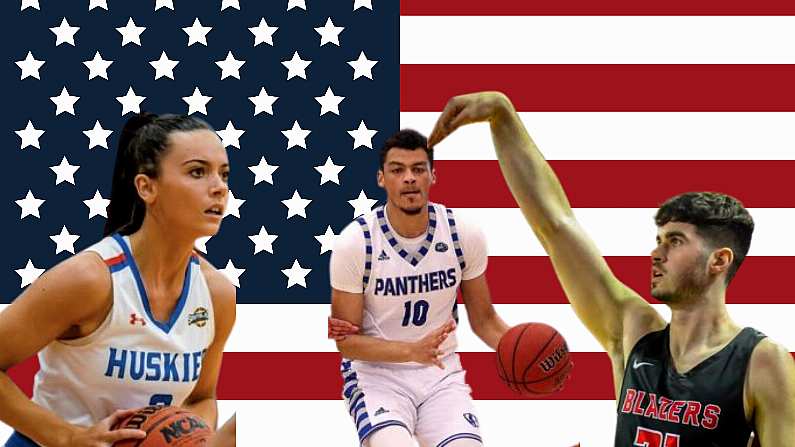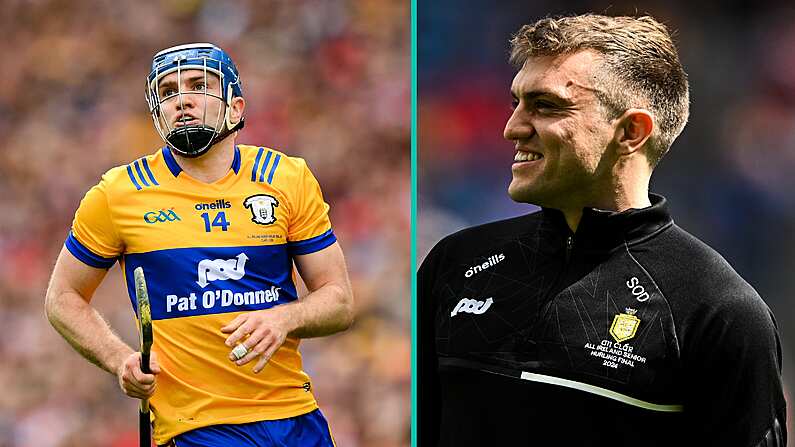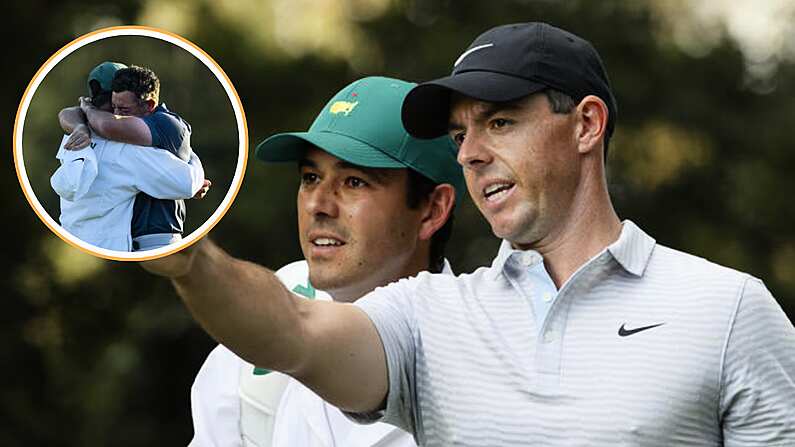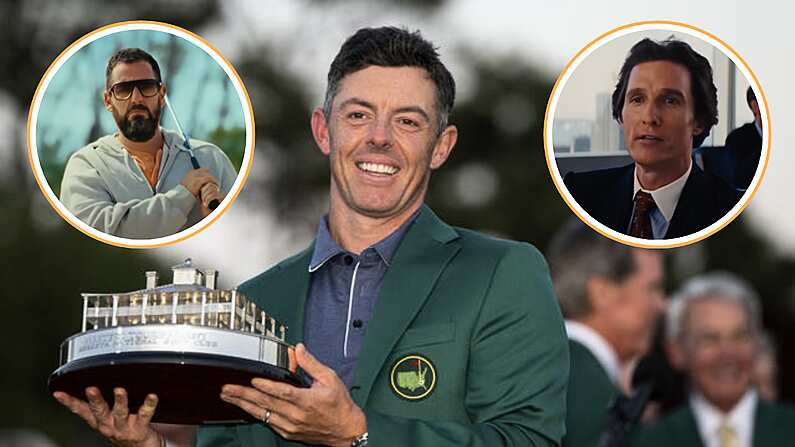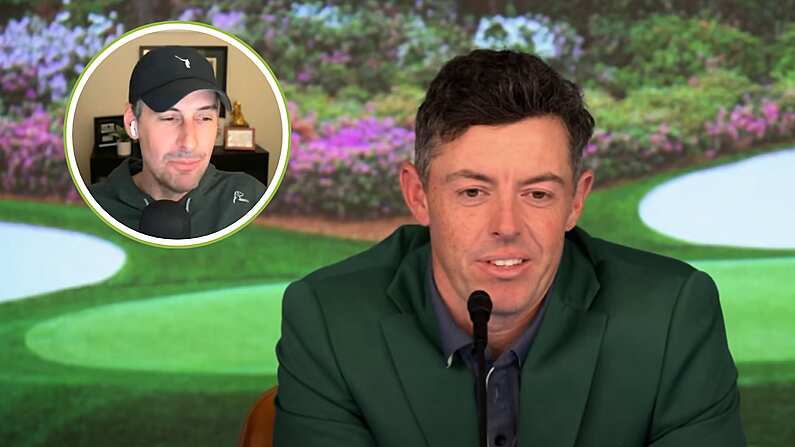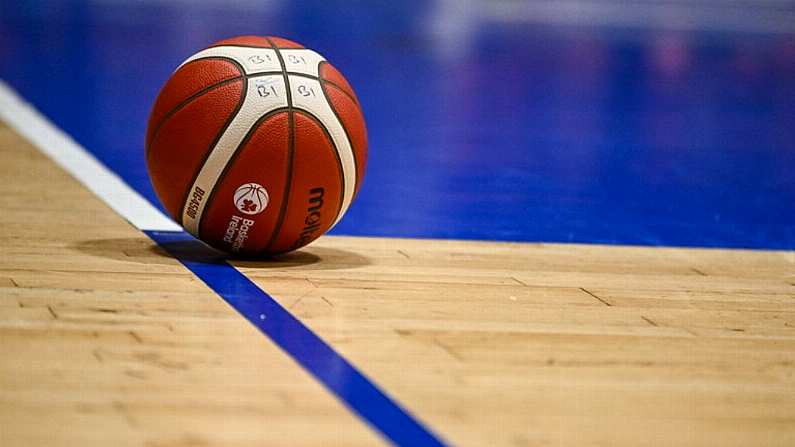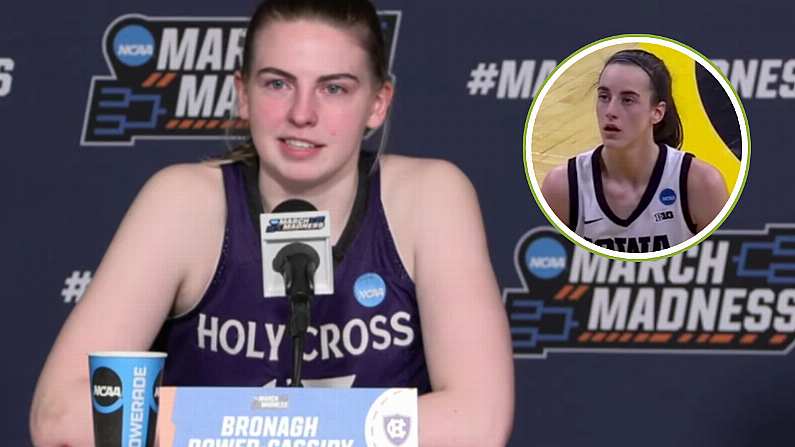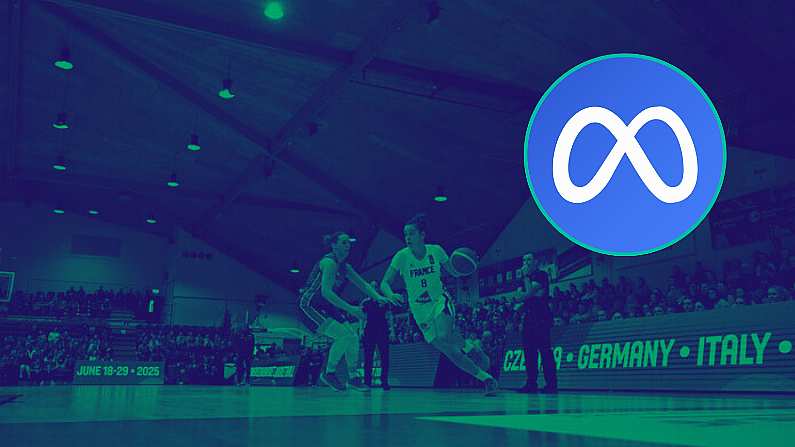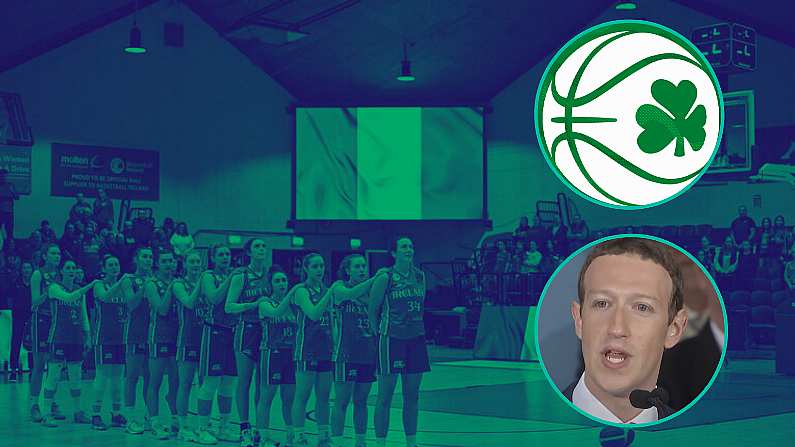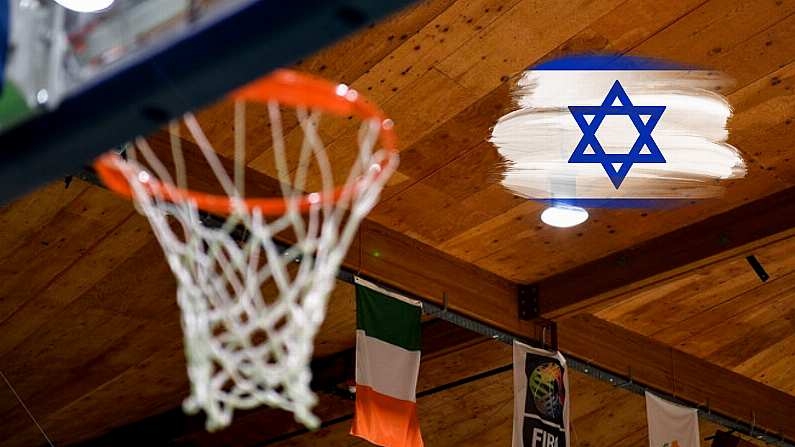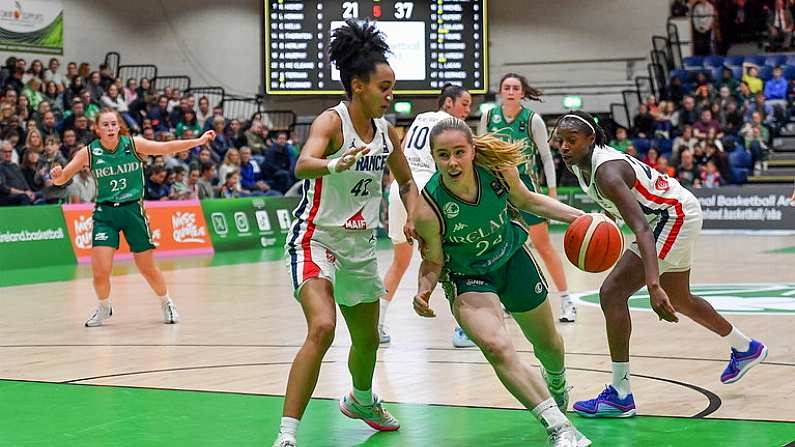The Lawrenceville School is tucked away behind the village it takes its name from in New Jersey, USA. The arborous approach to the school gives way to reveal stately, 19th-century red-brick campus buildings. It looks grand.
Ryan Leonard first arrived at the Lawrenceville campus in August 2017. At 19-years-old, the Tralee native had enrolled at the school on a basketball scholarship. He had just spent a year playing in Ireland’s semi-professional Super League with the Tralee Warriors.
It wasn’t immediately obvious to him, but he was rubbing shoulders with the American elite as he walked the campus on those first days. For a boarding student, the preparatory school’s 2020-21 tuition fees stand at over $70,000.
“The students that were there... like some of them are from really, really successful families in America… I didn't know that going over there,” tells me over the phone. He’s still got the Kerry accent, although he admits it's not as strong when he’s speaking to Americans.
Leonard found himself schooling alongside the children of ex-NBA and MLB players. The CEO of American Express, as well as the owners of some NHL teams, sent their children to the school too.
“There [weren't] that many people that would have flaunted or whatever, so you wouldn't notice it.
“It's just hearing your stories of like… what they what they were doing after school or what they were doing during the holidays... or just even talking to them about what their families do.
“Then you start to realise like ‘Oh, shit, like, yeah, these guys have real, real money like that.”
He was a long way from Tralee now: “I obviously didn't grow up around a lot of rich people and that kind of thing. It was a really different experience and to see the way they live to be honest.”
***
For Irish basketball players, America is the promised land. The USA is the home of basketball and America's university system offers many opportunities to basketball players, both male and female. With Irish basketballers CJ Fulton, Sam Alajiki and Andre Igiehon taking on scholarships at Division 1 universities in the last few years, 'making it' in America has never been easier for players on this side of the Atlantic. But heading to the States also poses all kinds of cultural and sporting challenges.
When Leonard was 14-years-old, he travelled to Plymouth, England, to join a basketball academy. He lasted one month before he came home: “I just got too homesick.”
In those first months at Lawrenceville, he experienced similar feelings.
“You're going over [to the US] and you know nobody. You're meeting all these different people, and you're another ordinary person in the mix. It's definitely hard.”
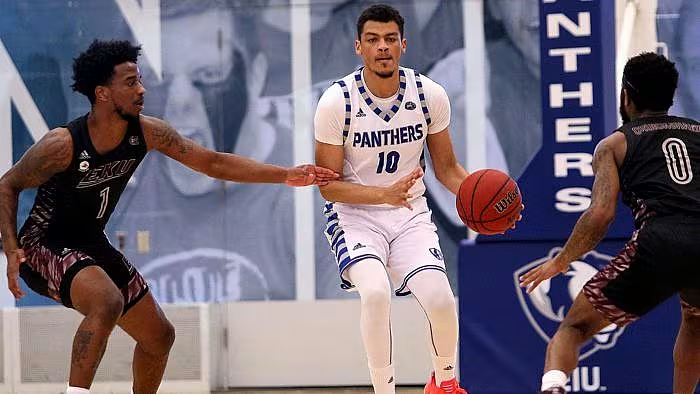
It’s common for anyone moving to a new place to feel anonymous. But for Leonard – who now plays NCAA Division 1 basketball at Eastern Illinois University – these feelings were accentuated by the life he’d left behind.
“I was also clinging on to stuff back home. I just played for the first time in the Super League in Ireland. We had great success… I did pretty well, and I loved the team.
“You're clinging on to everything... I always felt like, 'Aw, I could be at home right now'. Like, my mom cooking me dinner, I could be doing this and that, I'd be hanging out my friends and all this kind of stuff... but you just have to let that go.”
Indeed, pursuing a sport scholarship in America is a leap of faith for the steady trickle of teenage Irish athletes that move Stateside every year.
That said, it's an attractive proposition: play well enough, and you can secure an expenses-paid education at some of the world's most prestigious universities. Included in the deal is a potential pathway to a career in elite sport.
Anna Maguire knew her entire life that she wanted to travel to America and play college basketball.
It’s hard to imagine, then, what was running through her head when Maguire was pulled aside at the beginning of her second year at Saint Peter’s University in New Jersey and told that she wasn’t wanted anymore.
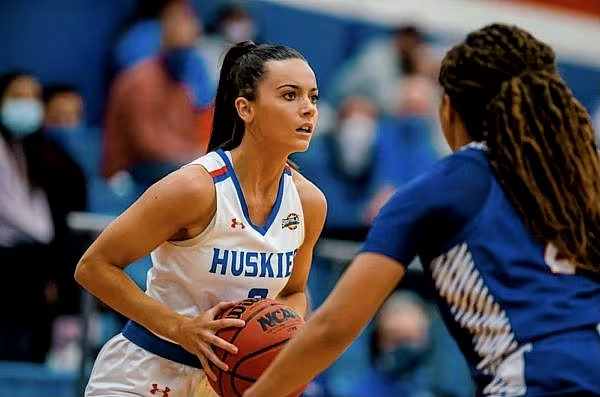
The Belfast native admits that the idea of playing basketball on a scholarship is "extremely glamorized" within Irish underage sporting circles.
The reality – as she learned playing Division 1 basketball – was a lot different.
“The NCAA is a business, and everyone treats it like such.”
It's a ruthless business at that – despite having never seen her play, a new coach at Saint Peter's decided that Maguire was not at the standard required to play Division 1.
“[The coach] just pulled me in, and he [said], ‘You’re so bad. I have no idea how you ever got here, but I feel bad for you. And it’s embarrassing. We want you to leave’.”
3,000 miles from home and still new to the cut-throat culture of elite American intercollegiate basketball, Maguire was heartbroken.
“That was tough, like that full year... they were bullies.
“It wasn't just me, like, they bullied people into leaving, and people did leave. And so it's tough that way.
“I'm sure there's a million situations that are similar to that.”
Supported by teammates, Maguire stood her ground and continued to play into her sophomore year at Saint Peter’s, but at the end of the season, decided that it was time to move on.
“I just decided I’d rather go somewhere that I’m wanted,” she recounts.
Not long after expressing her desire to leave New Jersey, Maguire received a phone call from Donna Finnie at Houston Baptist University (HBU). She’d been in contact with Maguire’s coaches in the Irish international set-up, and was interested in bringing the shooting guard to Texas – immediately.
Although nervous about making such a drastic switch, Maguire was soon vindicated when she agreed to transfer to HBU.
“Everything 100% happens for a reason, because I absolutely love it [at HBU].”
Matt Treacy has been to four separate educational institutions while in the States: a prep school, two universities and a junior college. Currently, he plays Division 2 basketball at Valdosta State in Georgia.
And despite this, the Dubliner still has moments where he has to take a step back: “I still get those feelings of, ‘Wow, I’m millions of miles away [from home].’”

The first time he can recall that sensation was during his first time on court in America: “They played the anthem before the game. And I'd obviously been used to hearing the Irish anthem, but I heard the American anthem played before the game. I was just thinking in my head, ‘Wow, like, I'm not at home anymore playing.’”
Day-to-day college life throws up some anomalies, too. Greek life and all its associations was something Treacy noticed as immediately alien to an Irish college experience.
“It kind of confused me a little bit, to be honest,” Treacy laughs. “The ins and outs of it I can't say I know too much about, but they seem to be having great craic.”
As someone with as much experience playing NCAA basketball as Treacy, the Terenure-native is familiar with the controversies that revolve around the multi-million dollar sports enterprise. Despite the financial pull of the organisation, athletes do not receive payment: be not for playing, not for image rights, not for television appearances.
“It's a good opportunity, regardlessly, [to play NCAA basketball],” he says. “It would be nicer to be getting paid for, all the hours you're putting in, of course, it definitely would be.
“But I mean, at the same time, you're getting provided with a scholarship most of the time, and you have your accommodation, you're getting your education... I wouldn't say it's changed my opinion of [the NCAA].”
It's not a surprising stance to take, given his position. However, for Jordan Blount, the former Irish NCAA star with the University of Illinois, hindsight offers a different perspective.
“I always used to tell my teammates, because I had been in Europe and I'd seen the life there, 'You don't understand how much of a bubble American college basketball is. You're so secure: You'll never be hungry, you'll never need clothes, you never need shoes, you never need anything. You're living in an amazing city with a team of people around you to make sure that your every need is catered to'.
“When I look at my team, we were on buses - I remember seeing a life-sized poster of me on a train one time. There were people courtside wearing t-shirts with my face on it.
“We were a featured team on ESPN a bunch of times. And I would have been one of the players that they would put up as a preview of the game.
“For people who have the ambitions to put their personality out there, there's so many ways they can make money, but they're just not allowed to - you get punished if you do.”
SEE ALSO: Frustrating Two Years At Louisville Ends For Irish Prospect Aidan Igiehon



